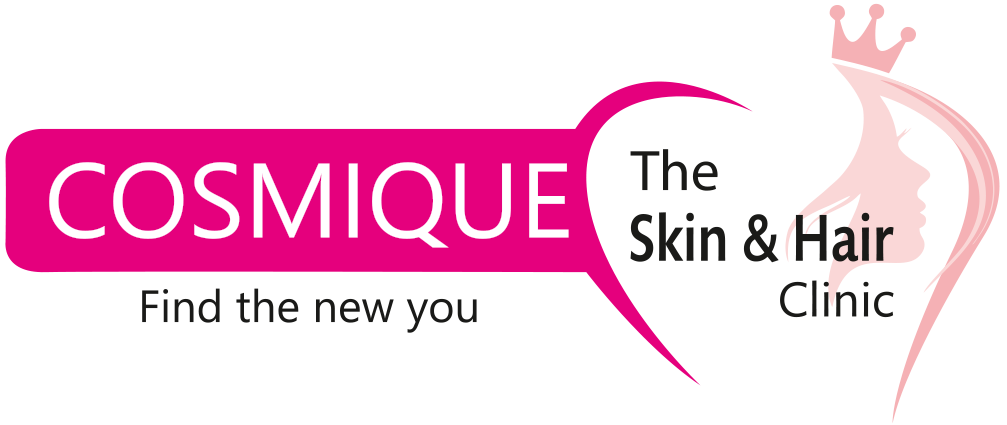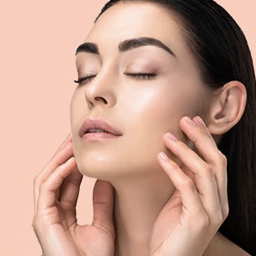Clean and clear skin is the dream of every human out there. The entire confidence might shatter if a small pimple appears on the skin, and as far as the human tendency goes, it is to pop it, leaving it with an acne scar that remains there for all eternity. The issue gets out of hand when the multiple pimples leave that scar and the level of confidence drips to ground level. But now you no longer have to worry about those nasty scars, as chemical peels have come to the rescue. Chemical peels are the new trend here in town and have numerous benefits, the main one being that they make the skin devoid of acne scars. In this blog, we are going to discuss how chemical peels treat acne scars.
There are multiple reasons why acne and flare-ups occur, and some of the reasons are hormonal imbalances, the use of a reactive product, stress-related, medications, etc. Even though acne scars do vanish or lighten over time, taking up chemical peel treatments can make the process faster. It will be ideal to take chemical peels after a professional consultation with your dermatologist. But before going to them, good research on your end will help you understand more about the chemical peel treatment.
What is a Chemical Peel Treatment?
A chemical peel is a cosmetic procedure where acids with high exfoliation are used on the skin to remove clogged pores and impurities. This chemical solution will help remove the dead cells, oil, and debris on the skin and help maintain the good texture and smoothness of the skin for a very long time. Now, do not think that when chemical peel solutions are applied to your skin, they peel off a layer of skin; instead, they just remove the impurities and dead cells. The solution does create an injury, and the level or severity of the injury depends on the kind of chemical solution. The injury to the skin only
Once the injury is caused on the skin, it eventually peels off, and new cells will replace the old ones.
Benefits of Chemical Peel Treatments
Acne scars leave a lot of shabby marks all over the face, and through adopting chemical peel treatments, other different skin benefits that follow chemical treatment, are as follows. Check out how chemical peels treat acne scars.
- Brightens pigmentation on the face, especially on spots of acne scars
- Stimulates collagen production
- Unclogs pores and results in clearer skin.
- Makes the skin tone even
- Reduces the appearance of acne scars.
- Improves the effectiveness of the other skin products’ penetration.
- Removes the top layer of skin.
The benefits of a chemical peel, especially on acne that arises when pores are clogged because of oily skin, are significant, and the scars that arise out of the pores are treated with better efficacy. When stronger chemical peel solutions are applied, the downtime and recovery time after the treatment are on the higher side, which is the main reason why such peels are naturally recommended to people. In such cases where it is required, strong peeling solutions are used on scars that deeply penetrate the skin.
How to Prepare Acne-Prone Skin Before a Chemical Peel Treatment?
If you are someone who follows routine skincare for treating their acne and flare-ups and goes for a chemical peel treatment, never change the daily skincare right before going to the treatment. The reason is that changing or adding in new products can cause an initial irritation, which is not ideal for skin that is being subjected to chemical peel treatment.
Types of Chemical Peels
It’s important to understand the types of treatments and how chemical peels treat acne scars. With the excellent reception that chemical peels are now getting, there are multiple options for chemical peels based on the intensity and severity with which you need the results. Strong peeling solutions require more time to recover, resulting in higher downtime. The peeling solution should be chosen according to where you stand in your acne journey and the depth of the scar that you are planning to treat. If there are much less intrusive options you can adopt, it will be ideal to stick with them.
There are many at-home peels available on the market that you can do yourself in the comfort of your home. If the acne scars have high and deep penetration, then the at-home peels are not going to do much about it. Using home peels can even out textures and treat mild scarring. Patients suffering from active acne can do home peels once a week to keep the acne at bay. It can treat hyperpigmentation and mild scarring and help unclog pores as well.
If you want to effectively improve the texture of your skin, it is best to use dermatologist-recommended products. You can use a cross-type peel if you are looking to deal with ice-pick scarring. Cross peel is otherwise known as TCA (trichloroacetic acid). TCA is also used in the treatment and removal of warts. Another peel called the phenol peel helps penetrate the skin.
Professional chemical peels need to be done if you are suffering from clogged pores, acne breakouts, severe scars, inflamed skin, etc. Such peeling treatments have to be taken only after a detailed consultation with the dermatologist. Depending on the issue, the peeling treatment can be decided upon, and there are three types:
-
Superficial Peel
The acid used in superficial peels mildly penetrates the top layer of the skin. This is an ideal treatment for slight skin discoloration and rough skin.
-
Medium Peel
This peel type has better concentration than that of a superficial peel, and it works with the middle layer of the skin. It can help treat aging, wrinkles, fine lines, etc.
-
Deep Peel
In this treatment, fruit acid is used to do the peeling. It also penetrates the middle layer of the skin and helps in treating scars and spots on the skin.
Chemical peeling is a treatment that dermatologists only recommend for certain types of acne scarring. There are other amazing alternatives, like laser treatments and micro-needling treatments. The factors that determine chemical peeling will depend on the skin tone and the type of scarring.






